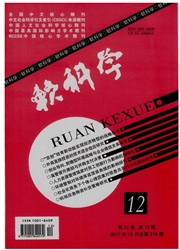

 中文摘要:
中文摘要:
基于社会网络理论和思维聚焦理论,构建出集群行为发展趋势的预测模型,采用Agent方法在无标度网络中模拟思维聚焦、群体异质性、关系强度、圈子认同等因素对集群行为发展水平与发展速度的影响作用,以探究集群行为的产生与发展趋势。研究发现:情绪聚焦型群体的集群行为发展水平与发展速度要高于问题聚焦型群体;在中等群体异质性条件下,情绪聚焦型群体的集群行为发展水平与速度可以达到最大值;弱关系环境更易助长情绪聚焦型群体集群行为发展水平与速度的提高;群体异质性与集群行为发展水平与速度呈倒U型关系,思维聚焦以及圈子认同对这种关系有调节作用。
 英文摘要:
英文摘要:
Based on the theory of social network theory and thought focus theory, the forecasting model of the development trend of cluster behavior is constructed. The agent development method is used to simulate the influence of regulatory focus, tie strength, group heterogeneity, social circle identity and other factors on the collective behavior in scale-free network, in order to explore the emergence and development trend ofcollective behavior. This paper finds that: the participation level and speed of promotion groups are greater than in prevention group ; with the appropriate community structure, promotion groups can achieve the highest level or speed; weak tie is more advantageous to the level or speed growth of prevention group ; group heterogeneity and level or speed has inverted u-shaped relationship in collective behavior, social circle identity and thought focus can moderate this relationship.
 同期刊论文项目
同期刊论文项目
 同项目期刊论文
同项目期刊论文
 期刊信息
期刊信息
